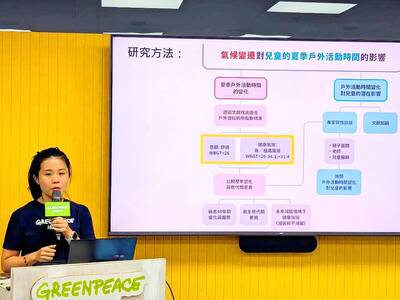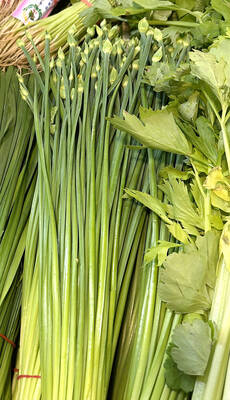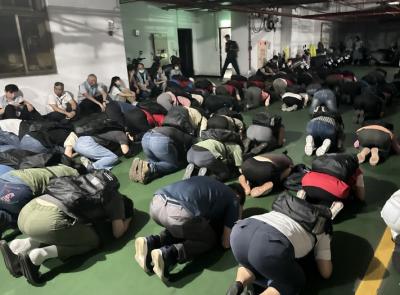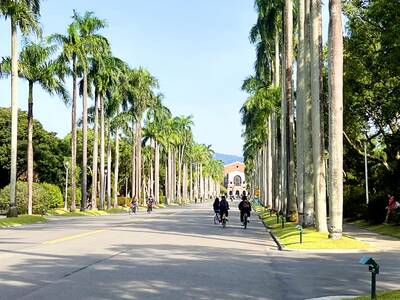Mountain-climbing enthusiast Tyler Cottenie became the subject of fervent online discussion after he announced the location of Taiwan’s “pole of inaccessibility” in Chiayi County’s Alishan Forest Recreation Park.
A pole of inaccessibility is the point considered the most inaccessible, usually the most distant location from a coastline.
Cottenie said he discovered Taiwan’s pole of inaccessibility using Google Earth and other tools.
He published his work online in English on Dec. 14 and in Chinese on Thursday last week.
Cottenie said that he narrowed down the location by drawing successively smaller areas on a map using geographical tools.
He said he was surprised to find that the pole, which is 67.411km from the nearest coastline, is only 150m from a paved road.
Cottenie posted a sign at the spot reading: “You are standing at the location farthest removed from the coast of this island.”
Cottenie posted the coordinates to the location on his Wordpress blog: N23o30’38.65” E120o49’0.9” in Alishan Township (阿里山), Chiayi County.
Chiayi Forest District Office Deputy Director Yang Jui-fen (楊瑞芬) on Monday confirmed that a sign was in place where Cottenie reported it to be, adding that the public should not go searching for it because of the danger of getting lost.
The area is easy get lost in, because there are no walkways through that part of the forest, Yang said.
A security guard who got lost in the area last year was never found, Yang said.
National Chung Cheng University Department of Earth and Environmental Sciences associate professor Cheng Kai-chien (鄭凱謙) said Cottenie’s calculations appear to be sound, but added that they fail to take elevation into account.
Cheng said that a more comprehensive three-dimensional calculation of the pole of inaccessibility would require much more information, adding that the average mountain climber would place the greatest emphasis on elevation.
The geographical center of Taiwan is at Tiger Head Mountain (虎頭山) in Nantou County’s Puli Township (埔里), where there are two monuments marking the location.

The government should improve children’s outdoor spaces and accelerate carbon reduction programs, as the risk of heat-related injury due to high summer temperatures rises each year, Greenpeace told a news conference yesterday. Greenpeace examined summer temperatures in Taipei, New Taipei City, Taoyuan, Hsinchu City, Taichung, Tainan and Kaohsiung to determine the effects of high temperatures and climate change on children’s outdoor activities, citing data garnered by China Medical University, which defines a wet-bulb globe temperature (WBGT) of 29°C or higher as posing the risk of heat-related injury. According to the Central Weather Administration, WBGT, commonly referred to as the heat index, estimates

The Taipei Department of Health’s latest inspection of fresh fruit and vegetables sold in local markets revealed a 25 percent failure rate, with most contraventions involving excessive pesticide residues, while two durians were also found to contain heavy metal cadmium at levels exceeding safety limits. Health Food and Drug Division Director Lin Kuan-chen (林冠蓁) yesterday said the agency routinely conducts inspections of fresh produce sold at traditional markets, supermarkets, hypermarkets, retail outlets and restaurants, testing for pesticide residues and other harmful substances. In its most recent inspection, conducted in May, the department randomly collected 52 samples from various locations, with testing showing

Taipei and other northern cities are to host air-raid drills from 1:30pm to 2pm tomorrow as part of urban resilience drills held alongside the Han Kuang exercises, Taiwan’s largest annual military exercises. Taipei, New Taipei City, Keelung, Taoyuan, Yilan County, Hsinchu City and Hsinchu County are to hold the annual Wanan air defense exercise tomorrow, following similar drills held in central and southern Taiwan yesterday and today respectively. The Taipei Mass Rapid Transit (MRT) and Maokong Gondola are to run as usual, although stations and passenger parking lots would have an “entry only, no exit” policy once air raid sirens sound, Taipei

Taipei placed 14th in the Quacquarelli Symonds (QS) Best Student Cities 2026 list, its highest ever, according to results released yesterday. With an overall score of 89.1, the city climbed 12 places from the previous year, surpassing its previous best ranking of 17th in 2019. Taipei is “one of Asia’s leading higher-education hubs,” with strong employer activity scores and students “enjoying their experience of the city and often keen to stay after graduation,” a QS staff writer said. In addition to Taipei, Hsinchu (71st), Tainan (92nd), Taichung (113th) and Taoyuan (130th) also made QS’ list of the top 150 student cities. Hsinchu showed the